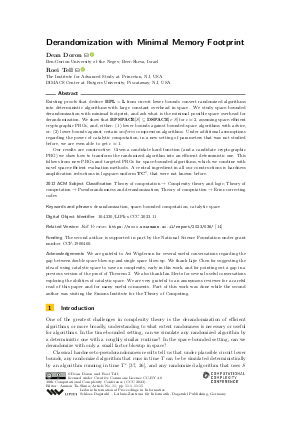LIPIcs.CCC.2023.11.pdf
- Filesize: 0.8 MB
- 15 pages

 Creative Commons Attribution 4.0 International license
Creative Commons Attribution 4.0 International license
















































Feedback for Dagstuhl Publishing